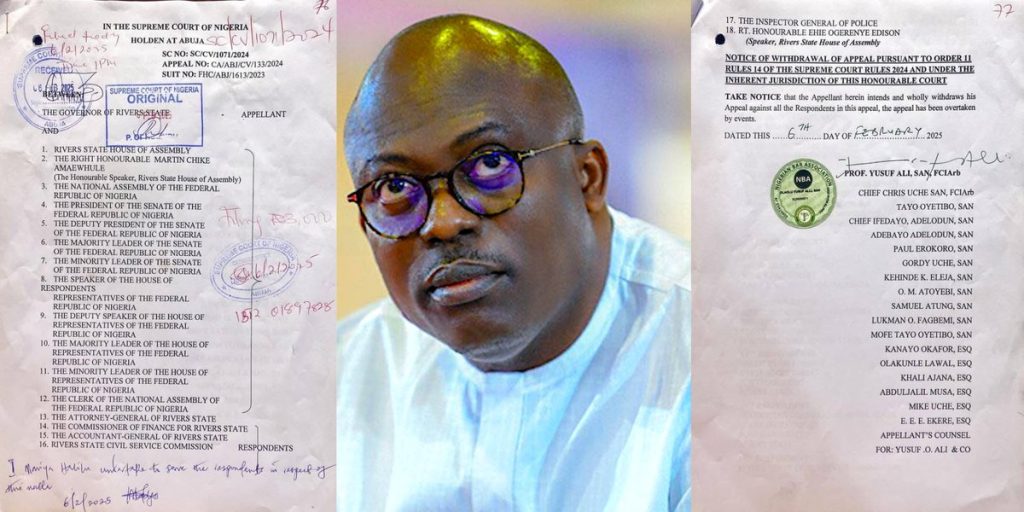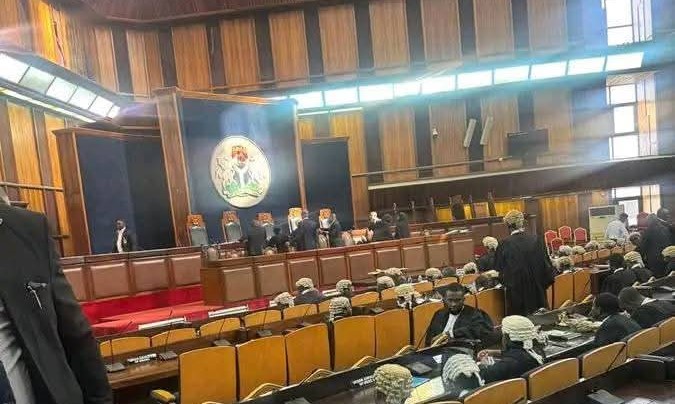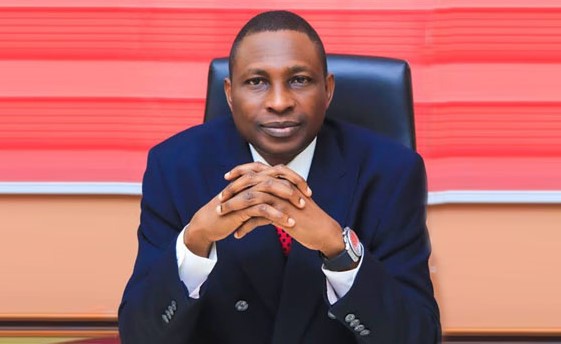The Nigerian Supreme Court sitting in Abuja on Monday, February 10, dismissed an appeal filed by Rivers State Governor, Siminalayi Fubara, challenging the leadership of the Rivers State House of Assembly.
The court also ordered Fubara to pay ₦2 million to the Assembly and its Speaker, Martin Amaewhule.
The appeal was withdrawn by Fubara’s lawyer, Yusuf Ali, who stated that the appeal had been overtaken by events. The withdrawal was not opposed by the 17 respondents in the case.
Background of the Case
The case originated from a leadership crisis within the Rivers State House of Assembly. Fubara had presented the 2024 Rivers State Appropriation Bill to a four-member Assembly led by Edison Ehie, which was deemed illegal by the Court of Appeal.

The Court of Appeal ruled that Fubara’s actions violated Section 96 of the 1999 Constitution, which requires at least one-third of the Assembly members to form a quorum.
The court said that “four out of 31 members cannot, by any stretch of the imagination, constitute the required quorum for legislative business.“
READ ALSO | Court of Appeal Affirms Martin Amaewhule as Legitimate Rivers Speaker, Rebukes Gov. Fubara
The Supreme Court’s decision to dismiss the appeal brings an end to the legal battle over the leadership of the Rivers State House of Assembly.
Rivers State Government Reacts
In its reaction to the judgement of the apex court, Gov. Fubara’s chief of staff, Edison Ehie, clarified that its case challenging the leadership of the State House of Assembly and the membership of the members who defected in December 2023 is still before the Supreme Court.
He explained that the Supreme Court decision on Monday, February 10, 2025 was about the Appeal Court Judgement that Fubara should re-present the 2024 budget before the Martins Amaewhule-led Assembly.
He said since the 2024 budget has been spent, Fubara thought to withdraw his appeal against the judgement because it will be a mere academic exercise to dwell on the matter.
He described the appeal case as “purely academic,” having withdrawn from it, necessitating the dismissal.
“It would be most unwise to belabour the Honourable Court with academic appeals without any practical or utilitarian value.”
Like 👍, Comment, share this article, and Follow us on our social media handles.







